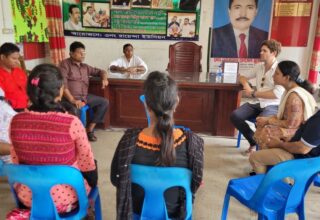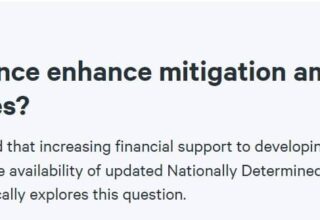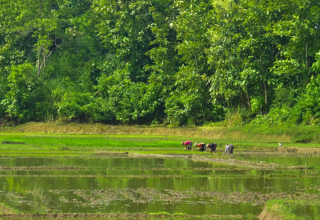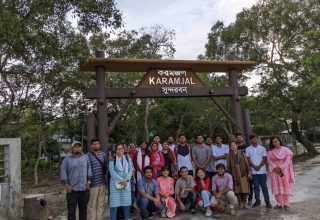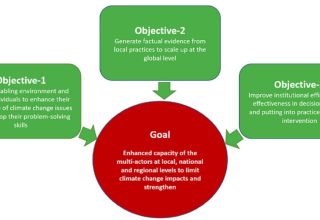(Originally published here)
Money for fighting climate change was in focus at the closing session of Gobeshona – an annual Conference for Research on Climate Change in Bangladesh. The conference provided the opportunity for international and multi-stakeholder participants to engage with a wide range of Bangladesh-specific climate change research.
John Timmons Roberts, Ittleson Professor of Sociology and Environmental Studies at Brown University and an internationally renowned expert on climate finance, delivered the keynote speech, sharing his insights on the recently concluded 21st International Climate Change Conference (COP 21) in Paris.
“There are two ways to look at the Paris outcome,” Roberts said. “If we think of what could have been, it’s a miracle. By comparison to what it should have been – it is a disaster.”
He recalled that in Bali (COP 13) and Copenhagen (COP 15) there was fear that the UNFCCC (The United Nations Framework Convention on Climate Change) process will not survive, but Paris has proven that it will. “For countries like Bangladesh which do not have huge amounts of geopolitical power, multilateral processes like these [Conference of Parties] are necessary,” he said.
Professor Roberts considers the national pledges of global emissions reduction (INDCs) that have been submitted during COP 21 to be an indicator of success. “Copenhagen’s outcome was very weak and inequitable. With the INDCs, we are getting closer to an equitable system,” he says. These pledges would decrease global warming down to around 2.7 degrees, which is not enough to prevent catastrophic climate change, “but it is almost one degree better than we were a year ago,” he added.
He credits a part of that success to the work of the Obama administration in its bilateral talks with China. “They broke the ice and other countries though we can’t not do anything,” he said.
According to Professor Roberts, the commitments made in Paris have to be ratcheted up with stronger pledges in the future and global stock take in order for mitigation and adaptation to be effective.
He said that according to some people, the Paris agreement could be termed as a failure as it has no accountability mechanism. But he said that it is built on countries holding each other accountable and civil societies shaming and holding governments accountable.
In Copenhagen 30 billion USD was pledged in fast track finance, which has subsequently been increased to 100 billion USD. However, the Paris agreement lacks clarity regarding the nature and amount of the funds and is non-binding in nature. “In the negotiations, the inclusion of binding targets would have made it difficult to pass the agreement through the US senate,” he said, pointing out the political realities of climate finance.
“We still lack a definition of what counts as climate finance,” he expressed sadly, highlighting added difficulties in deciphering the finance segment of the agreement. “There needs to be some clarity regarding what qualifies as climate finance so that when countries make promises it is clear what they imply.”
He pointed out there is no reference to innovative finance in the agreement. In the context of increasing impacts of climate change, finding sources of funding that are stable, new and additional is vital.
On the topic of funding, Christian Tardiff, Charge d’ Affaires, High Commission of Canada to Bangladesh, said that Bangladesh is spending a significant amount of its GDP on climate change adaptation. “In order for Bangladesh to secure its just share of international funding, it is important for the financial and planning and monitoring systems to be put in place,” he said, adding that civil society organisations, NGOs, think tanks all have a role to play to ensure the follow through and accountability.
“There is a quiet revolution going on in Bangladesh,” said Anwar Hossain Manju, Minister of Environment and Forests, highlighting some of the efforts the government of Bangladesh is taking to adapt to climate change using local resources, such as building cyclone shelters.
Bangladesh is currently funding the majority of its adaptation projects domestically, but the need for international funding for this resource-constrained country cannot be ignored. In this context the minister said it was important to demonstrate good quality work for accessing climate finance. “You need focus on the work, and the money will come in,” added Anwar Hossain.
Written by: Sohara Mehroze Shachi

